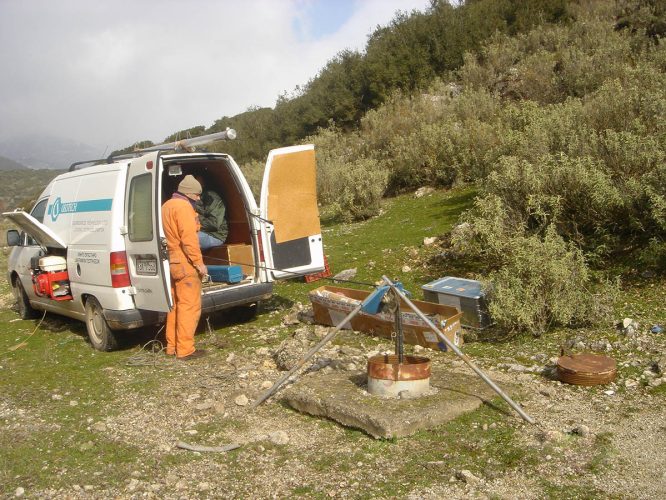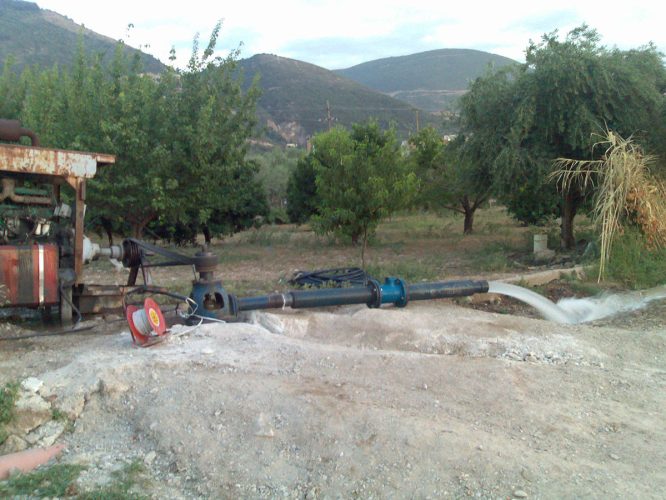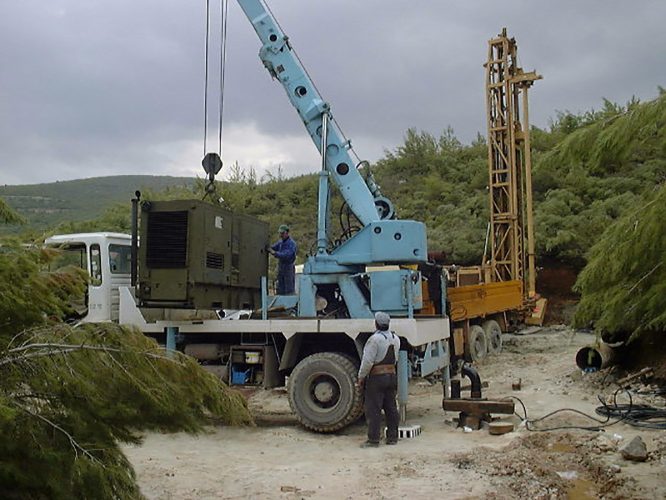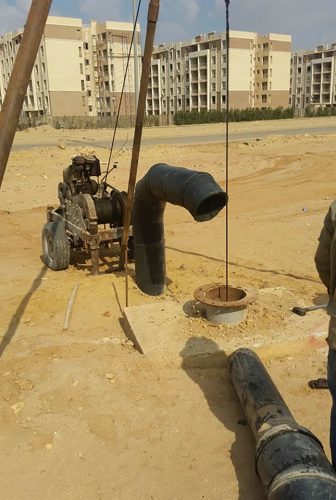Water wells maintenance
Drillmaster
During our longstanding engagement in water wells drilling , we have been faced various issues in the course of their operation.
Indicatively we cite the following:
- Several holes or portions of the screens are clogged. Calcium carbonate, iron bacteria, silt, clay, and “slime,” a combination of sediment and deposits, are all common well cloggers.
- Casing collapse or fracture.
- Poor gravel packing selection/procedures.
- Excessive sand producing wells.
- ESP (Electrical submersible pump) misplacing downhole.
- Poor well screens design.
- Improper well cleaning from drilling fluid prior putting on production or rejecting.
- Reservoir permeability decrease due to blocking of sediments.
- Excessive over pumping out of producing wells.
- Insufficient wells spacing for the same reservoir
A large number of these can be counteracted with the continuous maintenance of the wells, which is required to be performed on a regular basis. The techniques used include;




Chemical Cleaning:
- Using chemicals to dissolve the screen plugging materials so they can be pumped out from the well.
Mechanical Cleaning:
- Cleaning the well with a brush that can be attached to a drilling rig and then used in the well.
Hydraulic Cleaning:
- Well surging are procedures in which water is injected into the well at high pressures.
Acidizing job:
- Enhancing water reservoir efficiency for production and reject water wells. Using chemicals inside reservoir pores so that original reservoir permeability can be restored and moreover be enhanced.
For specialized problems, an appropriate study is conducted towards their resolution and certain techniques are applied by our experienced personnel.